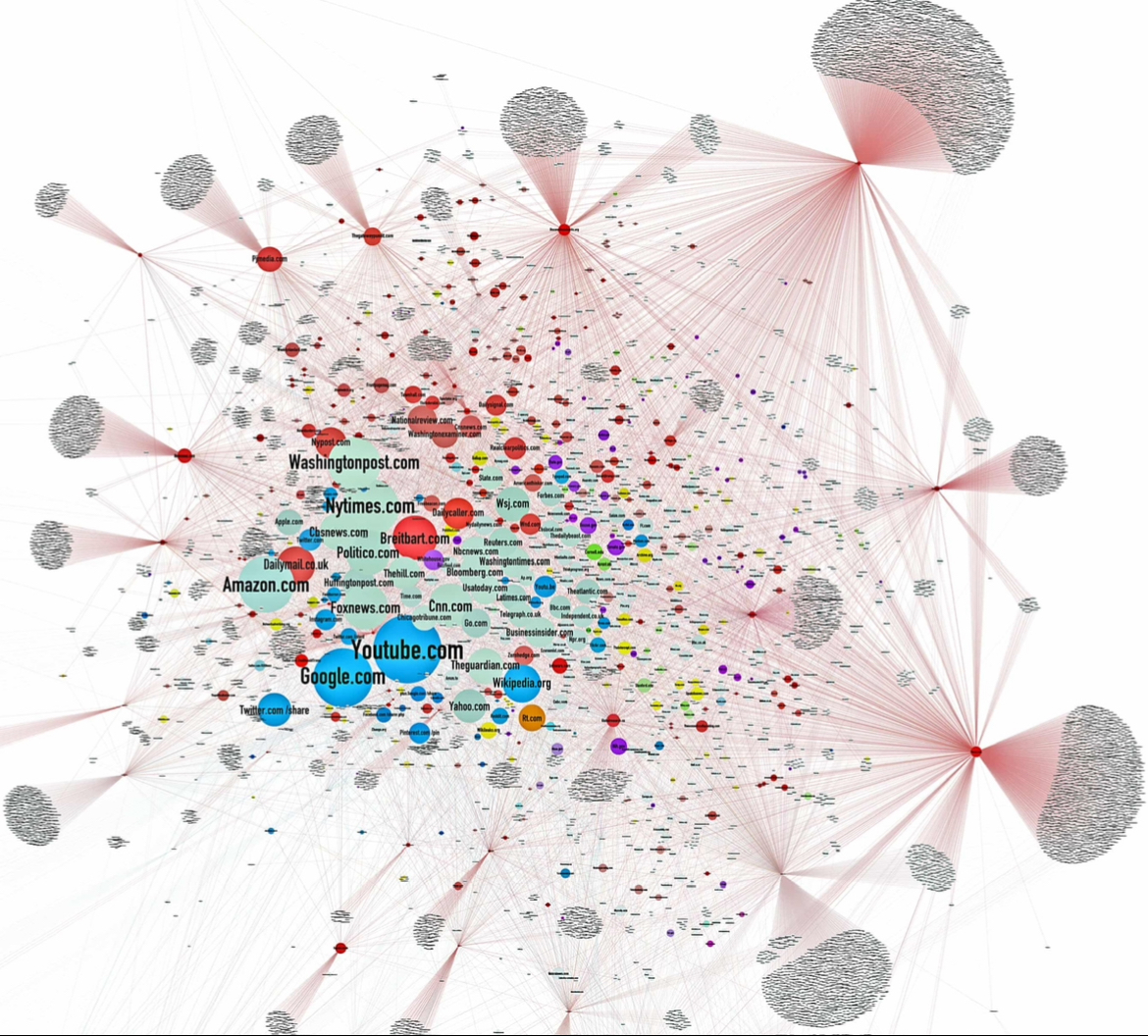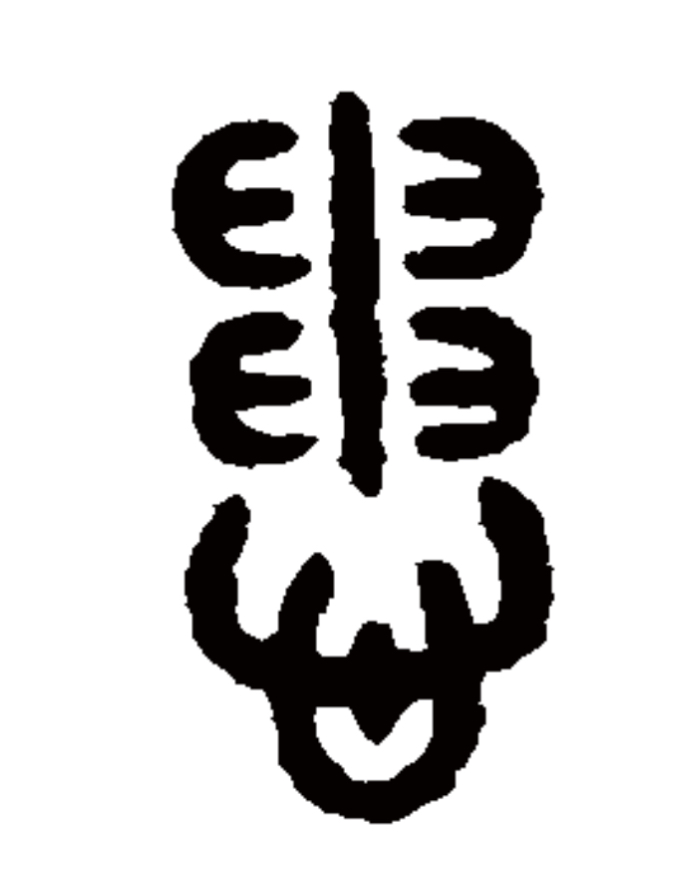Spectres & Souls
患得患失
The aide said that guys like me were ‘in what we call the reality-based community,’ which he defined as people who ‘believe that solutions emerge from your judicious study of discernible reality.’ […] ‘That’s not the way the world really works anymore,’ he continued. ‘We’re an empire now, and when we act, we create our own reality. And while you’re studying that reality—judiciously, as you will—we’ll act again, creating other new realities, which you can study too, and that’s how things will sort out. We’re history’s actors…and you, all of you, will be left to just study what we do’.
These lines are from a report by Ron Suskin that appeared in New York Times Magazine in October 2004. The hubristic tone was disconcerting enough, even more alarming was what it reflected about the nature of power, words and reality. The talk about imperious power holders who could ‘create their own reality’, brought to mind a documentary film released the previous year — The Fog of War: Eleven Lessons from the Life of Robert S. McNamara. And the figure of Robert McNamara recalled the years of the Vietnam War when, as the historian David Halberstam described it in 1972, Washington pursued ‘brilliant policies that defied common sense’. For many people who grew up in that era — and decades before claims about ‘fake news’ and the promotion of ‘alternative facts’ became commonplace — there was already a yawning chasm between on-the-ground facts and useful political fictions. And over those decades, journalists, editors and writers were tireless in their efforts to report on the hidden realities obscured in that chasm. Today, the ‘reality-based community’ is embattled by the enemies of ‘common sense’ who claim that they are acting in the name of common sense.
***
In A new era dawns. America’s tech bros now strut their stuff in the corridors of power, reprinted below, Carole Cadwalladr, a novelist and journalist who specialises in technology reporting for The Observer, revisits a topic that has featured in her work since 2016, when she published a series of articles about what she called the ‘right-wing fake news ecosystem’. See: Google, democracy and the truth about internet search, The Guardian, 4 December 2016.
***

A spatial map of the rightwing fake news ecosystem. Source: Jonathan Albright
In 2016, Jonathan Albright (@d1gi), now the Director of the Digital Forensics Initiative at the Tow Center for Digital Journalism at Columbia University, ‘scraped’ 300 fake news sites (the dark shapes on this map) to reveal the 1.3m hyperlinks that connect them together and link them into the mainstream news ecosystem. Albright illustrated that a ‘vast satellite system of rightwing news and propaganda … has completely surrounded the mainstream media system’.
In a Tweet/X post dated 14 November 2024, Cadwalladr said:
At the time, @d1gi described this fake news ecosystem to me as a living organism growing, mestasizing [sic]. ‘Are you saying the internet has cancer?’ I asked him? ‘Yes,’ he replied.
In the wake of the US elections in November 2024, Nathan Heller, a staff writer at The New Yorker, called it ‘the ambience of information’:
In a country where more than half of adults have literacy below a sixth-grade level, ambient information, however thin and wrong, is more powerful than actual facts. It has been the Democrats’ long-held premise that access to the truth will set the public free. They have corrected misinformation and sought to drop data to individual doors. This year’s contest shows that this premise is wrong. A majority of the American public doesn’t believe information that goes against what it thinks it knows—and a lot of what it thinks it knows originates in the brain of Donald Trump. He has polluted the well of received wisdom and what passes for common sense in America. And, until Democrats, too, figure out how to message ambiently, they’ll find themselves fighting not just a candidate but what the public holds to be self-evident truths.
Around the same time, Michael Tomasky asked in The New Republic, Why Does No One Understand the Real Reason Trump Won?:
Today, the right-wing media—Fox News (and the entire News Corp.), Newsmax, One America News Network, the Sinclair network of radio and TV stations and newspapers, iHeart Media (formerly Clear Channel), the Bott Radio Network (Christian radio), Elon Musk’s X, the huge podcasts like Joe Rogan’s, and much more—sets the news agenda in this country. And they fed their audiences a diet of slanted and distorted information that made it possible for Trump to win. …
This is the year in which it became obvious that the right-wing media has more power than the mainstream media. It’s not just that it’s bigger. It’s that it speaks with one voice, and that voice says Democrats and liberals are treasonous elitists who hate you, and Republicans and conservatives love God and country and are your last line of defense against your son coming home from school your daughter.
And that is why Donald Trump won.
Heller acted as though he had had some kind of Eureka moment when in fact he was just telling us something that anyone who has followed the work of Carole Cadwalladr and Jonathan Albright, or for that matter Tomasky, has known for years.
***
This is the eighth installment in our consideration of Donald Trump’s 2024 electoral victory and part of the series Spectres and Souls, an ongoing reflection of the US-China relationship. The Chinese rubric of this chapter in our miniseries is 患得患失 huàn dé huàn shī, an expression that summarises a passage in The Analects《論語 · 陽貨》, as translated by Simon Leys. We offer it as a comment on Trump and his sodality:
鄙夫可事君也與哉。
其未得之也,患得之;
既得之,患失之。
苟患失之,無所不至矣。
Can one serve a prince in the company of a cad? Before he gets his position, his only fear is that he might not get it, and once he gets it, his only fear is that he might lose it. And when he fears to lose it, he becomes capable of anything.
— Geremie R. Barmé
Editor, China Heritage
14 November 2024
***
Further Reading:
-
Carole Cadwalladr, How to survive the broligarchy: 20 lessons for the post-truth world, The Guardian, 17 November 2024
- Bryce P. Tetraeder, Here’s Why I Decided To Buy ‘InfoWars’, The Onion, 14 November 2024
- Fintan O’Toole, The Second Coming, The New York Review of Books, 5 December 2024
- Nathan Heller, Republican Victory and the Ambience of Information, The New Yorker, 13 November 2024
- Carole Cadwalladr, Don’t rejoice yet, Elon Musk and his tech bros-in-arms are winning the global battle for the truth, The Guardian, 31 August 2024
- ‘You are garlic chives!’ — Trisolarans, Burn Book and China’s Men in Black, 20 April 2024
- Fintan O’Toole, The Lie of Nation Building, The New York Review of Books, 7 October 2021
- Robert D. Putnam, Bowling Alone: The Collapse and Revival of American Community, 2001, New York: Simon & Schuster
***
Contra Trump 2024
- MAGADU — Kubla Khan, Xanadu & the 2024 American presidential election
- Waiting for the Barbarians in a Garbage Time of History
- Unless we ourselves are The Barbarians …
- What seeds can I plant in this muck?
- If you elect a cretin once, you’ve made a mistake. If you elect him twice, you’re the cretin.
- The Great Red Wall — A Remarkable Coalition of the Disgruntled
- A Political Monster Straight Out of Grendel
- Trump is cholera. His hate, his lies – it’s an infection that’s in the drinking water now.
- Trump Redux — Who Goes Nazi Now?
‘Brexit, a Petri dish for Trump’
This is not about left or right or Leave or Remain or Trump or not. It’s about whether it’s possible to have a free and fair election ever again. Because, as it stands, I don’t think it is.
And so my question to you is, is this what you want? Is this how you want history to remember you: as the handmaidens to authoritarianism that is on the rise all across the world?
Because you set out to connect people, and you are refusing to acknowledge that the same technology is now driving us apart.
And my question to everybody else is, is this what we want: to let them get away with it, and to sit back and play with our phones, as this darkness falls?
— Carole Cadwalladr, TED Talk, April 2019
***
A new era dawns. America’s tech bros now strut their stuff in the corridors of power
Carole Cadwalladr
In hindsight, 2016 was the beginning of the beginning. And 2024 is the end of that beginning and the start of something much, much worse.
It began as a tear in the information space, a dawning realisation that the world as we knew it – stable, fixed by facts, balustraded by evidence – was now a rip in the fabric of reality. And the turbulence that Trump is about to unleash – alongside pain and cruelty and hardship – is possible because that’s where we already live: in information chaos.
It’s exactly eight years since we realised there were invisible undercurrents flowing beneath the surface of our world. Or perhaps I should talk for myself here. It was when I realised. A week before the 2016 US presidential election, I spotted a weird constellation of events and googled “tech disruption” + “democracy”, found not a single hit and pitched a piece to my editor.
It was published on 6 November 2016. In it, I quoted the “technology mudslide hypothesis” a concept invented by Clayton Christensen, a professor at Harvard Business School, who coined the term “disruption” – a process endlessly fetishised in tech circles, in which a scrappy upstart such as Microsoft could overthrow a colossus like IBM.
Whoever wins, I wrote, this election represented “the Great Disruption. With Trump the Great Disruptor.” And, for good measure, I chucked in some questions: “Will democracy survive? Will Nato? Is a free and fair election possible in a post-truth world?”
That article was the beginning of my own Alice in Wonderland tumble down the rabbit hole, and I reread it with the sinking knowledge that this next presidential term may yet provide those answers. If it seems like I’m crowing, I wish. This isn’t a valedictory “I told you so”: it’s an eight-year anniversary reminder for us to wake up. And a serving of notice: the first stage of this process is now complete. And we have to understand what that means.
We’ve spent those eight years learning a new lexicon: “misinformation”, “disinformation”, “microtargeting”. We’ve learned about information warfare. As journalists, we, like FBI investigators, used evidence to show how social media was a vulnerable “threat surface” that bad actors such as Cambridge Analytica and the Kremlin could exploit. PhDs have been written on the weaponisation of social media. But none of this helps us now.
There’s already a judiciary subcommittee on the “weaponisation of the federal government” in Congress to investigate the “censorship industrial complex” – the idea that big tech is “censoring” Republican voices. For the past 18 months, it’s been subpoena-ing academics. Last week, Elon Musk tweeted that the next stage would be “prosecutions”. A friend of mine, an Ivy League professor on the list, texts to say the day will shortly come “where I will have to decide whether to stay or go”.
Trump’s list of enemies is not theoretical. It already exists. My friend is on it. In 2022, Trump announced a “day one” executive order instructing “the Department of Justice to investigate all parties involved in the new online censorship regime … and to aggressively prosecute any and all crimes identified”. And my friends in other countries know exactly where this leads.
Another message arrives from Maria Ressa, the Nobel prize-winning Filipino journalist. In the Philippines, the government is modelled on the US one and she writes about what happened when President Duterte controlled all three branches of it. “It took six months after he took office for our institutions to crumble.” And then she was arrested.
What we did during the first wave of disruption, 2016-24, won’t work now. Can you “weaponise” social media when social media is the weapon? Remember the philosopher Marshall McLuhan – “the medium is the message”? Well the medium now is Musk. The world’s richest man bought a global communication platform and is now the shadow head of state of what was the world’s greatest superpower. That’s the message. Have you got it yet?
Does the technology mudslide hypothesis now make sense? Of how a small innovation can eventually disrupt a legacy brand? That brand is truth. It’s evidence. It’s journalism. It’s science. It’s the Enlightenment. A niche concept you’ll find behind a paywall at the New York Times.
You have a subscription? Enjoy your clean, hygienic, fact-checked news. Then come with me into the information sewers, where we will wade through the shit everyone else consumes. Trump is cholera. His hate, his lies – it’s an infection that’s in the drinking water now. Our information system is London’s stinking streets before the Victorian miracle of sanitation. We fixed that through engineering. But we haven’t fixed this. We had eight years to hold Silicon Valley to account. And we failed. Utterly.
Because this, now, isn’t politics in any sense we understand it. The young men who came out for Trump were voting for protein powder and deadlifting as much as they were for a 78-year-old convicted felon. They were voting for bitcoin and weighted squats. For YouTube shorts and Twitch streams. For podcast bros and crypto bros and tech bros and the bro of bros: Elon Musk.
Social media is mainstream media now. It’s where the majority of the world gets its news. Though who even cares about news? It’s where the world gets its memes and jokes and consumes its endlessly mutating trends. Forget “internet culture”. The internet is culture. And this is where this election was fought and won … long before a single person cast a ballot.
Steve Bannon was right. Politics is downstream from culture. Chris Wylie, the Cambridge Analytica whistleblower, quoted his old boss to me in my first phone call with him. Elections are downstream from white men talking on platforms that white men built, juiced by invisible algorithms our broligarch overlords control. This is culture now.
The Observer’s reporting on Facebook and Cambridge Analytica belongs to the old world order. An order that ended on 6 November 2024. That was the first wave of algorithmic disruption which gave us Brexit and Trump’s first term, when our rule-based norms creaked but still applied.
The challenge now is to understand that this world has gone. Mark Zuckerberg has ditched his suit, grown out his Caesar haircut and bought a rapper-style gold chain. He’s said one of his biggest regrets is apologising too much. Because he – like others in Silicon Valley – has read the runes. PayPal’s co-founder Peter Thiel, creeping around in the shadows, ensured his man, JD Vance, got on the presidential ticket. Musk wagered a Silicon Valley-style bet by going all in on Trump. Jeff Bezos, late to the party, jumped on the bandwagon with just days to go, ensuring his Washington Post didn’t endorse any candidate.
These bros know. They don’t fear journalists any more. Journalists will now learn to fear them. Because this is oligarchy now. This is the fusion of state and commercial power in a ruling elite. It’s not a coincidence that Musk spouts the Kremlin’s talking points and chats to Putin on the phone. The chaos of Russia in the 90s is the template; billions will be made, people will die, crimes will be committed.
Our challenge is to realise that the first cycle of disruption is complete. We’re through the looking glass. We’re all wading through the information sewers. Trump is a bacillus but the problem is the pipes. We can and must fix this.
***
Source:
- Carole Cadwalladr, A new era dawns. America’s tech bros now strut their stuff in the corridors of power, The Guardian, 11 November 2024
***
America: Oligarchy or Autocracy?
If we replicate the cowardice of the liberal class, if we sell out to the oligarchs as a way to blunt the rise of autocracy, we will discredit the core values of a civil society and fuel the very autocracy we seek to defeat. Despotism, in all its forms, is dangerous. If we achieve nothing else in the fight against the oligarchs and the autocrats, we will at least salvage our dignity and integrity.
— Chris Hedges, 27 September 2021
***


